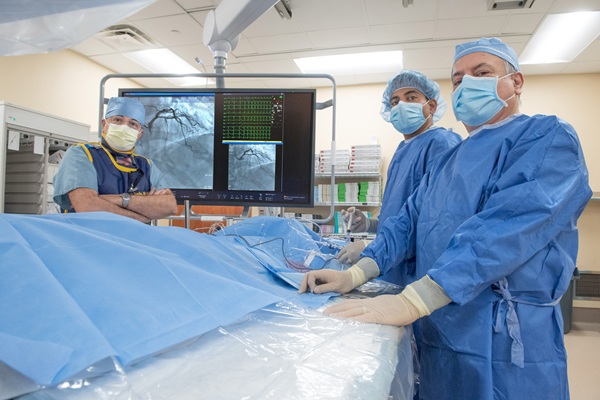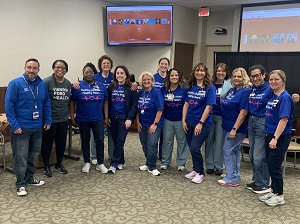
High Blood Pressure In Kids Is More Common Than You Think
High blood pressure in kids is a growing problem. Read what causes pediatric hypertension, how its diagnosed and how—and why—to treat it.
Nearly 70 years ago, doctors at Henry Ford Health helped develop the medical specialty of vascular surgery. Experts from Henry Ford Heart & Vascular continue this tradition, delivering innovative treatments that protect your health and improve your quality of life.
At Henry Ford, our vascular surgeons help develop new ways to diagnose and treat vascular disease, giving you access to the latest innovations. We focus on your individual needs, considering all options, including creative solutions. We find effective treatment that lasts as long as possible.
When you come to us for care, you’ll find:
Vascular surgeons offer a wide range of treatments for diseases affecting blood vessels. They care for all veins and arteries, other than those that sit in the brain or supply the heart with blood.
Henry Ford’s vascular surgeons do much more than just surgery. We provide comprehensive care, starting when you first come to us with symptoms. Our care includes:
As vascular surgeons, we provide care for blood vessels throughout the body, with the exception of those that sit in the brain or supply the heart. Our surgeons often handle diagnosis, treatment and ongoing care by themselves, but sometimes work with other doctors in special cases.
Our partnerships include:

High blood pressure in kids is a growing problem. Read what causes pediatric hypertension, how its diagnosed and how—and why—to treat it.

Need a good reason to fall in love? Being in love has a positive impact on your heart - relaxing blood vessels and improving blood pressure.

Estrogen changes during menopause can impact your cholesterol levels. During this time, make sure you are working with your provider to manage your health.

While anxiety, depression and PTSD are all normal mental health changes that can develop after you have a heart attack, many people aren't prepared for how these new feelings might impact their recovery.


Henry Ford Health is outpacing a national trend toward radial access on percutaneous coronary interventions. More than 75% of the health system’s PCIs are performed threading a catheter through the wrist instead of the groin, compared to a national average of 57.5% in 2022, according to research.


We use cookies to improve your website experience. By using this site, you agree to our Terms of Use. Read our Internet Privacy Statement to learn what information we collect and how we use it.